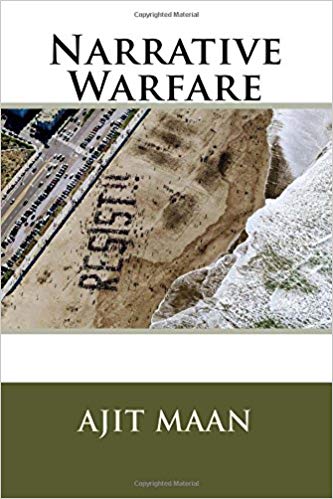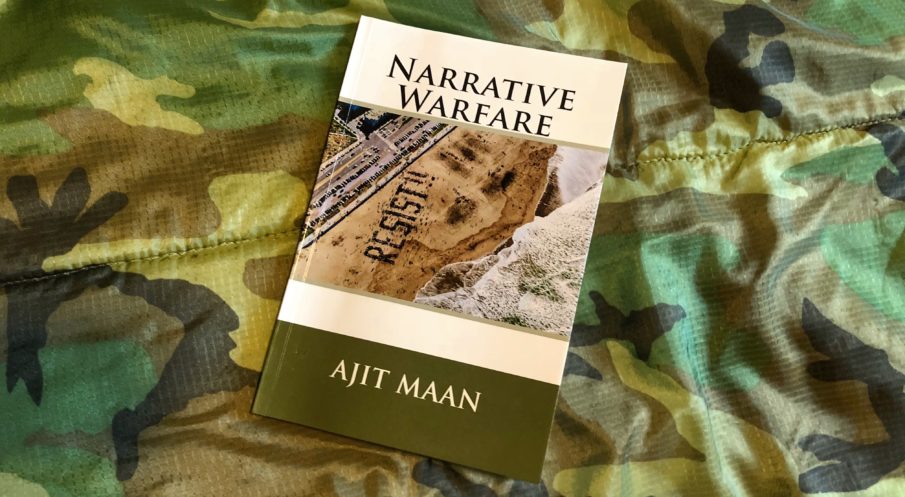Having a passion for books and an eight-month-old baby that’s feverishly growing a mouthful of teeth makes for some difficult evenings. You think she’s finally drifted off to sleep for the night and you make your way into your office with firm intent. I’m going to spend an hour reading before I get back to work, you promise yourself with a false resolve.
Then, as you’ve settled into your chair, book in one hand, drink in the other, you take one long, slow sip as you crack the cover and then there it is. The crackling static-laden cries of your pride and joy — she’s lost her binkie, and her aching gums have stolen away both her much-needed sleep and your time to read. You sigh but certainly can’t hold it against her. I haven’t grown any teeth in some time — but it seems like rough work.
Working your way through some reading as a new dad has to be a labor of love, or it simply won’t happen. Like a good video game, a book has to call you back with the promise of both challenge and reward, pressing you back into the pages during your brief bouts of free time like a kid hoping to reach the next level of whatever game it is they’re playing this week. It’s not even really just about gaining knowledge — you can get facts anywhere — no, a book is like getting a glimpse into another person’s perspective, and a really good one might even help to change your own.
“Narrative Warfare” by Dr. Ajit Maan, the Director of the think (and do) tank Narrative Strategies, was just such a book, and the best evidence I have to support that claim is that no one asked me to read it. There have certainly been times when I’ve been approached by my editors with a book to review, and while I always give my honest assessment of them, I often read them because it’s my job. It’s easier to justify stealing time away in your office to work your way through some pages when you have a deadline looming — but when you’re just reading for fun, the drive to consume a few more paragraphs, pages or chapters has to be stronger than your desire to get to bed a little earlier or spend some quality time with Netflix.
Maan’s background isn’t quite what you’d expect from an expert in counter-terrorism and security strategies: academically versed in philosophy, her interest in the way narrative molds the world we live in arose organically through her work. In her words (from the book’s introduction):
Plato would have banned artists from his ideal Republic because he feared the way artists, poets in particular, could sway the emotions of the populous. Aristotle also appreciated the power poets wield but he understood a bit more about what we now call human psychology and viewed the effects of poetry as an opportunity for people to practice managing emotions.”
Over time, Maan’s unique perspective and insight into how narrative shapes our lives led to the formation of Narrative Strategies through partnerships with scholars and service members alike. Maan’s recognized expertise in the field has led to her being invited to address leaders from America’s Special Operations Command, as America’s defense apparatus grew to recognize the ways modern warfare extends beyond the kinetic operations we’ve grown so accustomed to seeing on the news. Maan argues that in many cases, a concerted effort to manage the narrative in situations and places where extremism is embraced can actually result in a more lasting and effective peace.
Put in dangerously simplistic terms, the effort to kill extremists in some situations can result in creating martyrs or emboldening others that remained on the fence, but discrediting the stories used to indoctrinate people into extremist views can eliminate the threat at its source before it has a chance to take root.
“Narrative Warfare” not only takes gives an informative analysis of the types of efforts utilized by America’s enemies to recruit from or influence the populous, but it also provides a hard look at America’s current reluctance to engage in the narrative battlespace. As Maan herself put it, narrative management is often associated in America “with ‘spin’ or propaganda, and then leaves some disillusioned with the potential of any kind of non-kinetic approach to counter-terrorism.” She’s right — here in the United States, discussion about narrative, perception, and influence in the mainstream media is almost always regarding the malign intent of the Russian government, framing the concept of narrative management as a tool of the nefarious. In truth, the effort itself is neutral; it’s the narrative being presented that determines it’s standing on the spectrum of good versus evil.
The book is a collection of Maan’s work, addressing topics ranging from ISIS recruitment efforts in small communities to Russia’s global disinformation campaigns, married to one another through the universal tactics employed by those who hope to color someone’s view of the world in a way that flatters their agenda. She contends that the United States needs to participate in this developing war, where logic and rationale are twisted through the manipulation of one’s sense of self. Whereas the U.S. currently works to counter bad narratives with the truth, Maan recognizes that truth has very little sway over belief.
When a bad actor tells lies, America repeats those lies and counters them: “What they said isn’t true, here are the facts.” The problem with that approach is human psychology: by offering a response, America lends credence to the bad actor’s claims, broadening their message’s reach and ultimately, hindering our own counter-disinformation efforts. Instead, Maan argues that the United States and its allies need to establish our own narratives, explaining our actions in a way that not only justifies them, but that discredits the narratives being put forth by competitors. Instead of reacting to bad narratives, American needs to be creating good ones.
Already have an account? Sign In
Two ways to continue to read this article.
Subscribe
$1.99
every 4 weeks
- Unlimited access to all articles
- Support independent journalism
- Ad-free reading experience
Subscribe Now
Recurring Monthly. Cancel Anytime.
At just over 90 pages, the book isn’t a particularly long read, but it can be a challenging one — both regarding subject matter and personal perceptions. Many in America refuse to accept the idea that narrative management can have an influence on the critical thinkers among us, but Maan’s approach to the subject matter demonstrates that influence has nothing to do with education or intellect. We are all susceptible to influence, and although her work broaches politically heated subject matter, she doesn’t choose sides — instead offering analysis and insight into the inner workings of the debates that continue to rage in domestic politics today.
While so many books regarding national defense focus on firepower and explosions, “Narrative Warfare” focuses on the people engaged in today’s conflicts — acknowledging the value of the kinetic approach but arguing the benefit of changing people’s minds as a means to finding peace in our chaotic world. If you can prevent extremism from taking root, you’ve defeated the enemy before they ever had a chance to pick up a rifle.
And that seems like a worthwhile endeavor to me.
You can buy “Narrative Warfare” by Dr. Ajit Maan here.

Featured image courtesy of the author.











COMMENTS